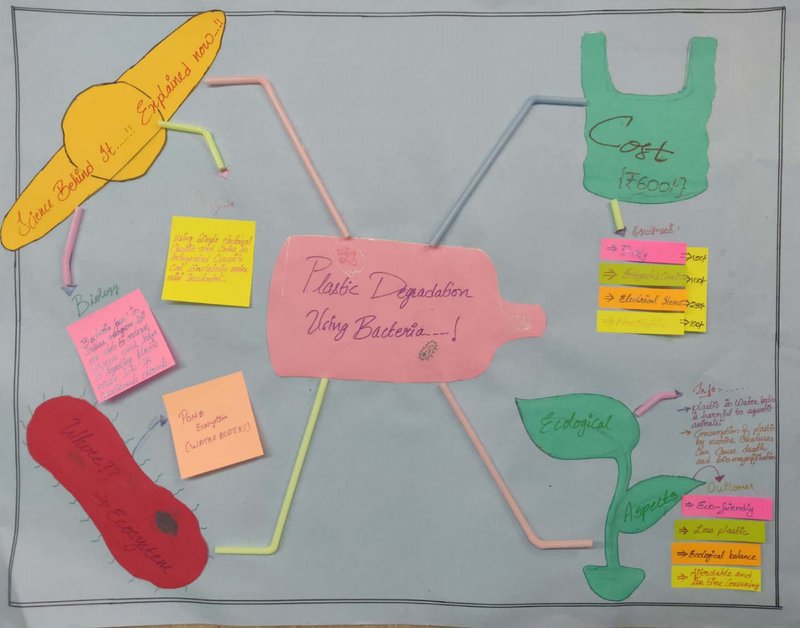Team Updates
DETAILED PRESENTATION OF OUR IDEA (A 4 MIN VIDEO)
A 30 SECONDS VIDEO OF OUR PROJECT
TEAM IOTA

Initial cost of the kit is 9 US DOLLARS and refill costs(each packet) 27 CENTS .It is reusable and also public can afford.






By the time of third pitch, we completed making a prototype of the kit about which we have explained previously. The components of the kit being the
1.Arduino (uno),
2.LCD screen,
3.LM35 temperature detector,
4.Aerator (for the circulation of air and maintaining the required amount of oxygen supply),
5.Relay
6.Incubator where the microorganism is cultivated.
1.Arduino
Arduino board designs use a variety of microprocessors and controllers. The boards are equipped with sets of digital and analogue input/output (I/O) pins that may be interfaced to various expansion boards or breadboards (shields) and other circuits. The boards feature serial communications interfaces, including universal serial bus (USB) on some models, which are also used for loading programs from personal computers.
2.LCD screen
A small display screen used to display the physical conditions of the microorganisms present in the incubator, such as temperature, pH, etc.
3.LM35 temperature sensor
It is a temperature sensor is a thermocouple or a resistance temperature detector (RTD) that gathers the temperature from a specific source and alters the collected information into understandable type for an apparatus or an observer
4.Aerator
Aerators are various devices used for aeration, or mixing air with another substance. These devices are used to add oxygen to the given substance.
5.Relay
A relay is an electrically operated switch.
6.Incubator
This is a device we use to store microorganism thus helping in multiplying its number. In this incubator temperature and pH is controlled using the Arduino. A coolant circulated tube is wound around the incubator to get the temperature in control when there is an increase in temperature than the required temperature to grow microorganism. this circulation of coolant is implemented using coding of the Arduino to the required measures.
Working
Using the Arduino, which is coded to control pH and temperature. The physical conditions of incubator are adjusted such that the microorganism starts multiplying. For our knowledge we connect LCD screen to Arduino to know the exact pH and temperature. The Arduino is also connected to the relay.as explained before the physical conditions are set in incubator and the microorganism is grown.



3D MODELLING OF PRODUCT
The detailed description of the box has been given,
Which contains incubator to grow these bacterium in small quantities
Using integrated circuit (Arduino board) the control of physical conditions like aeration, agitation, pH control, temperature.
And the detailed working of each part is given.
ANTI-PLASTIC BOX
A cubical shaped weapon waging war
against the disastrous plastic.
TOPIC :– WHAT THE WORLD NEEDS NOW IS.....!!
PLASTIC OUT OF THE WORLD
SUB-TOPIC:- HEALTH MAKES WEALTH (DECREASING BIOLOGICAL MAGNIFICATION)
By:-
Team IOTA
ABSTRACT
Biodegradation of polythene bags and plastic cups was analyzed after 2, 4, 6, and 9 months of incubation in the mangrove soil. The biodegradation of polythene bags was significantly higher (up to 4.21% in 9 months) than that of plastic cups (up to 0.25% in 9 months). Microbial counts in the degrading materials were recorded up to 79.67 x 10(4) per gram for total heterotrophic bacteria, and up to 55.33 x 10(2) per gram for fungi. The microbial species found associated with the degrading materials were identified as five Gram positive and two Gram negative bacteria, and eight fungal species of Aspergillus. The species that were predominant were Streptococcus, Staphylococcus, Micrococcus Moraxella, and Pseudomonas and two species of fungi (Aspergillus glaucus and A. niger). Efficacy of the microbial species in degradation of plastics and polythene was analyzed in shaker cultures. Among the bacteria, Pseudomonas species degraded 20.54% of polythene and 8.16% of plastics in one-month period. Among the fungal species, Aspergillus glaucus degraded 28.80% of polythene and 7.26% of plastics in one-month period. This work reveals that the mangrove soil is a good source of microbes capable of degrading polythene and plastics.
IN BRIEF
This is totally about clearing plastic debris. It is an idea of kit which contains required stuff to make environment for the growth of specific bacterium and fungal species, so these fungal or bacterium species eat up plastic as food when released on plastic.
SpaceApps is a NASA incubator innovation program.